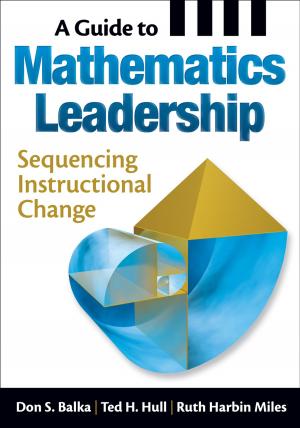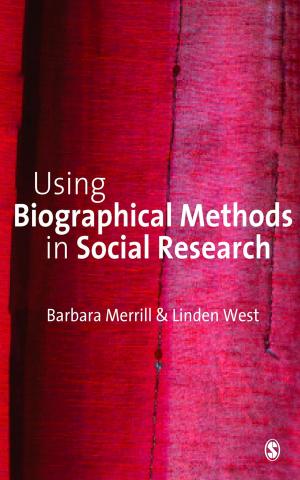| Author: | Clive Opie | ISBN: | 9781446233566 |
| Publisher: | SAGE Publications | Publication: | February 3, 2004 |
| Imprint: | SAGE Publications Ltd | Language: | English |
| Author: | Clive Opie |
| ISBN: | 9781446233566 |
| Publisher: | SAGE Publications |
| Publication: | February 3, 2004 |
| Imprint: | SAGE Publications Ltd |
| Language: | English |
`A welcome and helpful addition to the shelves of tutors and students working on masters programmes. It will be most beneficial supporting students on programmes where there is a substantial research training component. It offers important exemplars of using computer software in qualitative analysis' - Educational Review
`This book is aimed at Master's students who are engaging in educational research for the first time. [It] provides teacher-researchers with the additional information they need so they can go on to read further and more in depth, having more confidence in the accessibility of such studies. I found it does this well, and is an ideal point of reference for those who are just embarking on a Master's degree. A useful glossary is provided, giving detailed but 'readable' explanations of key terms and phrases' - Primary Practice
Doing Educational Research offers a hands-on guide for students engaged in educational research. It provides a comprehensive and accessible introduction to the key qualitative and quantitative methods necessary for those commencing research for the first time. Through a detailed yet concise explanation, the reader is shown how these methods work and how their outcomes may be interpreted.
Providing all the essentials for the first-time researcher, the book includes:
· a variety of examples and case studies to illustrate how the methods and techniques can be used in `real-life' contexts
· practical guidance on time management planning research projects and writing reports.
· a broad coverage - including qualitative and quantitative methodologies, data analysis using computer software, ethical issues and the writing-up and presentation of data.
This engaging book has been written by a team of leading researchers with over sixty years of cumulative experience. It has a student-friendly structure which will make it accessible and popular with undergraduates and postgraduates. It will be an invaluable resource for both students and researchers, helping them to undertake effective research in education.
`A welcome and helpful addition to the shelves of tutors and students working on masters programmes. It will be most beneficial supporting students on programmes where there is a substantial research training component. It offers important exemplars of using computer software in qualitative analysis' - Educational Review
`This book is aimed at Master's students who are engaging in educational research for the first time. [It] provides teacher-researchers with the additional information they need so they can go on to read further and more in depth, having more confidence in the accessibility of such studies. I found it does this well, and is an ideal point of reference for those who are just embarking on a Master's degree. A useful glossary is provided, giving detailed but 'readable' explanations of key terms and phrases' - Primary Practice
Doing Educational Research offers a hands-on guide for students engaged in educational research. It provides a comprehensive and accessible introduction to the key qualitative and quantitative methods necessary for those commencing research for the first time. Through a detailed yet concise explanation, the reader is shown how these methods work and how their outcomes may be interpreted.
Providing all the essentials for the first-time researcher, the book includes:
· a variety of examples and case studies to illustrate how the methods and techniques can be used in `real-life' contexts
· practical guidance on time management planning research projects and writing reports.
· a broad coverage - including qualitative and quantitative methodologies, data analysis using computer software, ethical issues and the writing-up and presentation of data.
This engaging book has been written by a team of leading researchers with over sixty years of cumulative experience. It has a student-friendly structure which will make it accessible and popular with undergraduates and postgraduates. It will be an invaluable resource for both students and researchers, helping them to undertake effective research in education.















